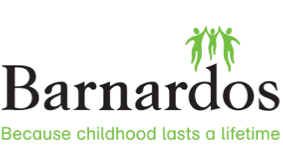Tusla, Care Orders & the Social Care System
What is a Care Order?
If Tusla finds that a child is being harmed or at risk of harm, they can apply to the courts for a Care Order. These orders give the courts service the power to make decisions about your child’s care arrangements.
A judge will make a decision on whether a child should taken into care by the Child & Family Agency (Tusla).
Why would Tusla apply for a Care Order for a child?
Tusla’s role is to promote and support child welfare and protection, and provide support to families. Their role is established by law in the Child & Family Agency Act 2013.
Tusla are required by law to provide alternative care where needed to children, under the Childcare Act 1991.
Tusla will apply to the courts for a Care Order for your child if a Social Worker’s Initial Assessment finds that your child is being harmed or is at risk of being harmed.
You can find out more about the Initial Assessment here.
How do the different Care Orders work?
A Care Order places your child in care on a temporary or permanent basis. This is different from case to case. These can continue until a child is 18 years of age.
An emergency care order places your child in care for a maximum (at most) of 8 days.
An interim care order places your child in care for a maximum (at most) of 28 days. This can be extended for longer.
A supervision order allows your child to remain in their home, but will be monitored by Tusla. This can last for a maximum (at most) of 12 months, but can be renewed.
A special care order involves placing a child in a Special Care Unit for a period of between 3-6 months. This can be extended for longer.
An interim special care order places your child in a Special Care Unit for a maximum (at most) of 28 days. This can be extended for longer.
What is a Special Care Order?
Special care orders involve placing a child in a Special Care Unit to receive special care services.
Special care orders can only be granted by the High Court.
Children are placed in Special Care Units if their behaviour poses a risk of harm to their life, health, safety, development or welfare.
What happens when a child is taken into care?
Children in care can be given different placements, such as foster care, residential care, or special care. Tusla will create an access plan for children in all placements so that they can still receive visits from parents and relatives.
Foster Care
Foster care involves placing the child with a foster family. Sometimes this can be a relative of the child or someone known to the child. This is known as Relative Foster Care.
All foster carers must go through a foster care assessment, must be assigned a foster care social worker, and must meet the foster care standards set out by HIQA.
Residential Care
Residential care involves placing a child in a Residential Care Service. This can be facilitated by Tusla or by an organisation acting on behalf of Tusla.
These are homes staffed 24/7 by social workers and care experts.
Special Care
Special care involves placing a child in a Special Care Unit.
This is provided by Tusla to children between the ages of 11 and 17, who are very vulnerable, have already experienced a number of care placements, or who have complex social and psychological needs.
Special Care Units provide a therapeutic space for these children.
Get in touch
If you are a parent who’d like some support through childcare proceedings, freephone or email [email protected], the Parental Advocacy Service, delivered by Barnardos.
Our independent & confidential service is open to all parents of children in care.
1800 333 355.
